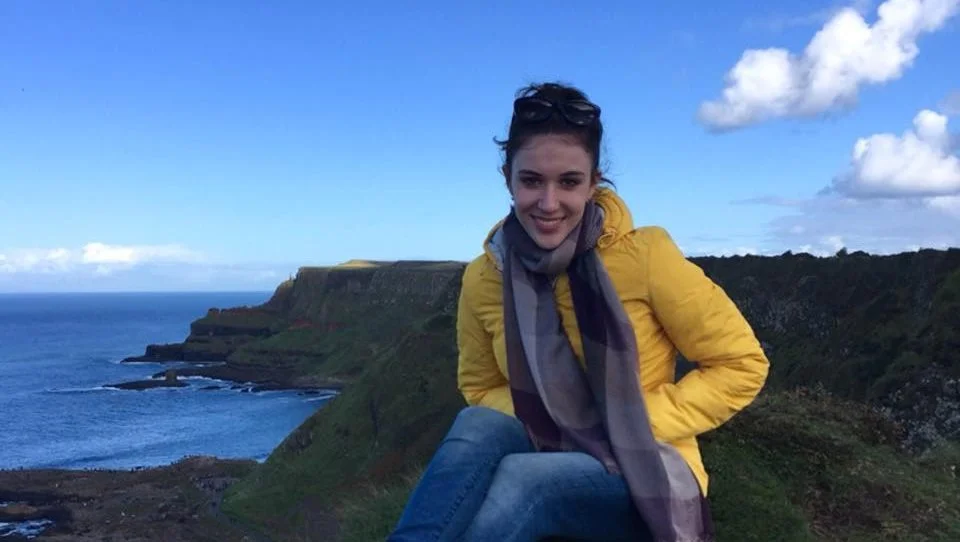Industry topics
Upcoming events
Lifelong learning

Claim your CPD points
Sophia shares her professional journey so far, her involvement with the Young Actuaries Advisory Board (YAAB) and her exciting experiences along the way.
I was drawn to the idea of representing the voices of young actuaries, while helping shape our future.
I'll admit that while studying at university, I didn't understand what the Actuaries Institute was and what it offered to actuaries. It was only when I started working in the profession that I was able to fully grasp what the Institute does and the value it offers to the actuarial community.
The ability to be involved in improving experiences for younger members via representing their voices, assisting in communications that promote or affect our profession and running events allows me to extend my passion and encourage others to be involved.

Sophia with 2023 Actuaries Institute President Naomi Edwards.
I love working with peers with different backgrounds and experiences as it allows for diverse opinions and interesting and productive discussions.
I'm lucky to be working and learning from many inspiring people.
There is so much to learn from those with more experience, and I'm fortunate to have support not only in a work sense but guidance as mentors, too.
I was fortunate enough to be a part of the Actuarial Co-op Scholarship Program at UNSW. During this time, I worked full-time for 15 months while completing a four-year degree, with internships at Suncorp, TAL and PwC.
In 2020, I started working in the PwC Actuarial team as a graduate and, three years later, I'm still here! I recently qualified as an actuary working in both traditional and non-traditional industries, including general insurance and health analytics.
Like many actuaries, one of the reasons that I became an actuary is because I enjoyed maths! Once I started university and my internships, I found myself surrounded by like-minded people and I have never looked back.
I like that my projects are very diverse. While it's always the same principles, they can be applied in so many different ways.
One of the challenges that I face in my role is being able to summarise and explain complex situations to those with non-actuarial backgrounds.
Qualifying - it wasn't a smooth road for me, so I'm proud of my tenacity and determination.
I'm proud to be an actuary as we are a highly-rated profession, filled with people who are movers and shakers within the business and finance world.
Communication! All the numbers in the world mean nothing unless they can be clearly communicated via written and verbal means, for a range of stakeholders.

Sophia dancing at university.
I grew up dancing and competing in all styles of dance before just focusing on ballet - I even tossed up whether to pursue a career as a ballerina! When I was in Year 12, I decided that I enjoyed studying a little bit too much, but managed to pursue my love of dance throughout university as I joined the UNSW Warrior's competitive dance teams.
My love of travel also led me to a three-month exchange in Italy as a freshly-turned 16-year-old, as well as a university semester at the University College Dublin.

A photo of Sophia visiting Uluru on one of adventures.
One day, I would like to be able to not scream over the tiniest of spiders.
I would eat more shellfish! I developed an allergy when I was 18 years old, so I can't eat it anymore.
I think it's essential that actuaries know how to write code using different programs (SAS, R, Python, SQL, DAX, VBA, etc.). Data cleaning, transformation and analytics are essential to our work.

Sophia travelling in Edinburgh, Scotland.
As a consultant at PwC, my work is driven by clients and what program I use depends on what they need - being a jack-of-all trades is handy! But if you don't have these skills, don't stress! When I started working, I didn't know anything but basic R, but I've managed to pick up more skills along the way.
I was fortunate enough to have worked on quite a few COVID-19-related projects at PwC. It was a great experience as I could see my work and results being used in real-life decision-making and could see the impacts that our results had within the community.
Be adaptable! Our profession is constantly changing; whether it be new industries, new technologies, new standards or new techniques, so being able to adapt is crucial!
Are you interested in joining our Young Actuaries Advisory Board? You can find out more here or you can join our Young Actuaries LinkedIn Group to access all the latest news, events, networking and more.